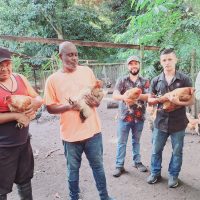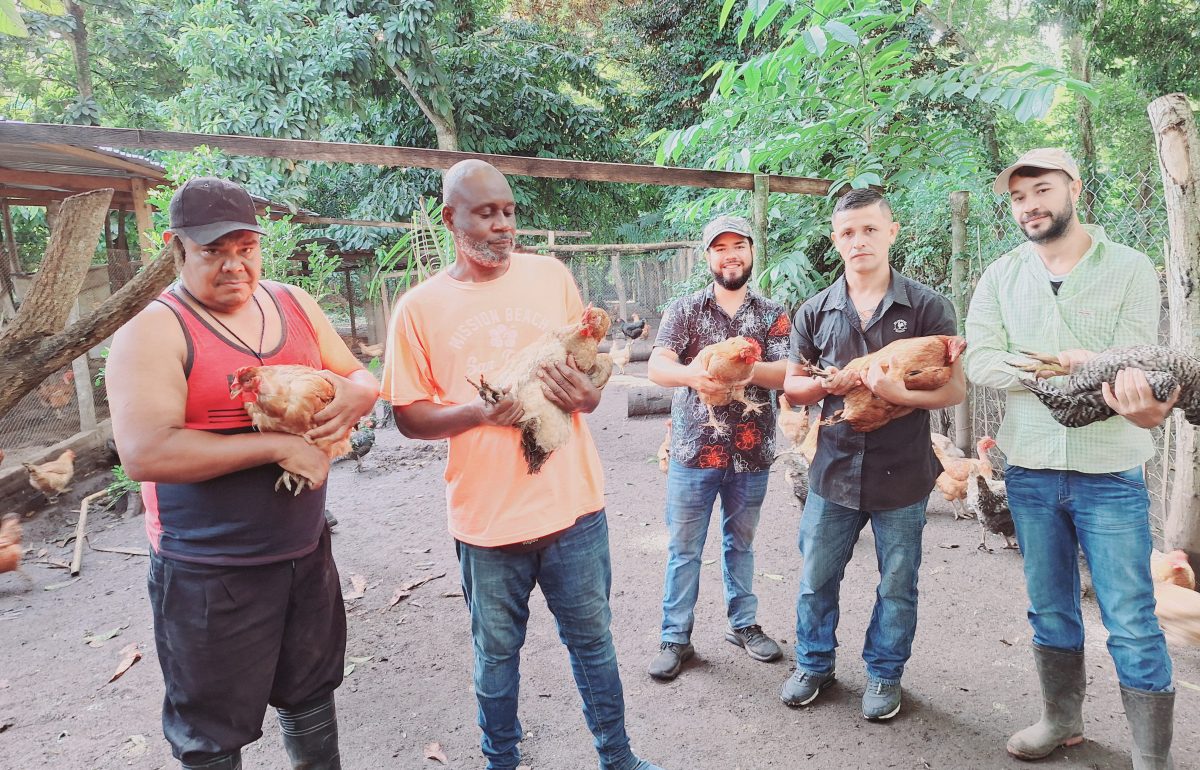Silence descends on the restaurant’s dining tables, punctuated by satisfied murmurs and the plink of cutlery. This food bursts with flavor. When you discover that most of the produce used to prepare your meal has been grown on the adjacent farm, you can’t wait to take a tour. You never imagined you’d find such a magical place of harmony and healing.
We’ve been working with this farm in Tapachula, near the Mexico-Guatemala border, and with a nearby shelter for over two years. What started out as a relief project to support a local shelter with fresh fruit and vegetables to feed migrants and the farm with labor, who earn a stipend for their efforts, has blossomed into an increasingly sustainable initiative bringing healing and peace.
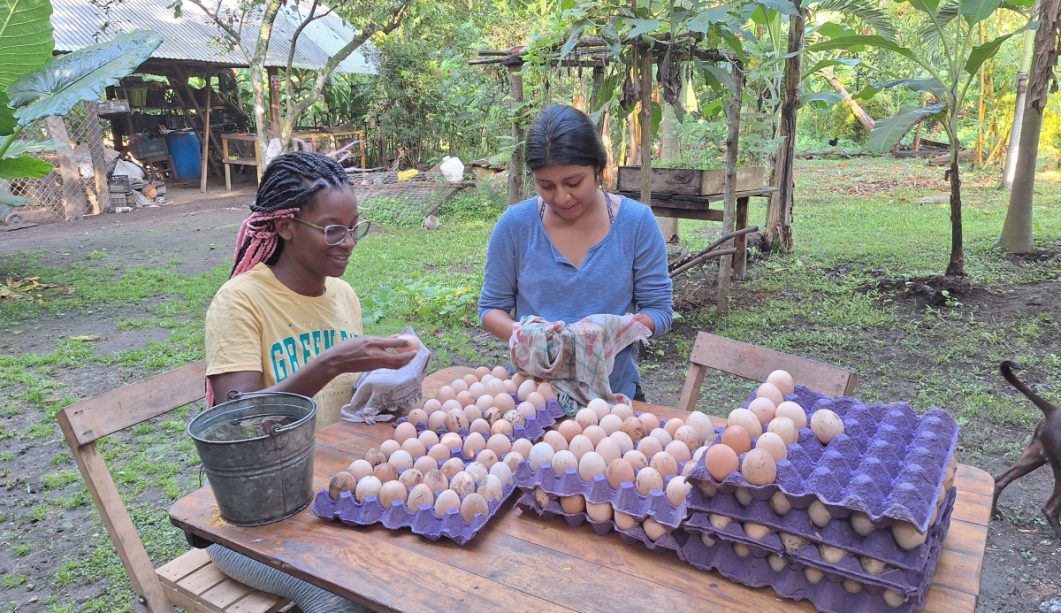
You’ve seen first-hand how migrants find being in the farm’s tranquility therapeutic and restorative. But it has also helped migrants from different nationalities get along better with one another. Taking care of the crops and the chickens on the farm together and making and distributing tamales for those staying on the streets caused migrants from various countries to form friendships with one another whereas they used to be suspicious of one another. Some of these friendships last long after they leave the shelter as they advise one another on their journeys or travel together. So far, the farm has had 165 people from the shelter voluntarily work on the farm.
The shelter has always received 80% of the farm’s yield while the farm receives 20% for its farm-to-table restaurant. About a year ago, your generosity enabled us to add a chicken coop so migrants staying at the shelter would have organic eggs, a healthy source of protein, consistently in their diet. The addition of the chicken coop was also strategic. We hoped that the chickens would lay enough eggs that could be sold to eventually finance our projects.
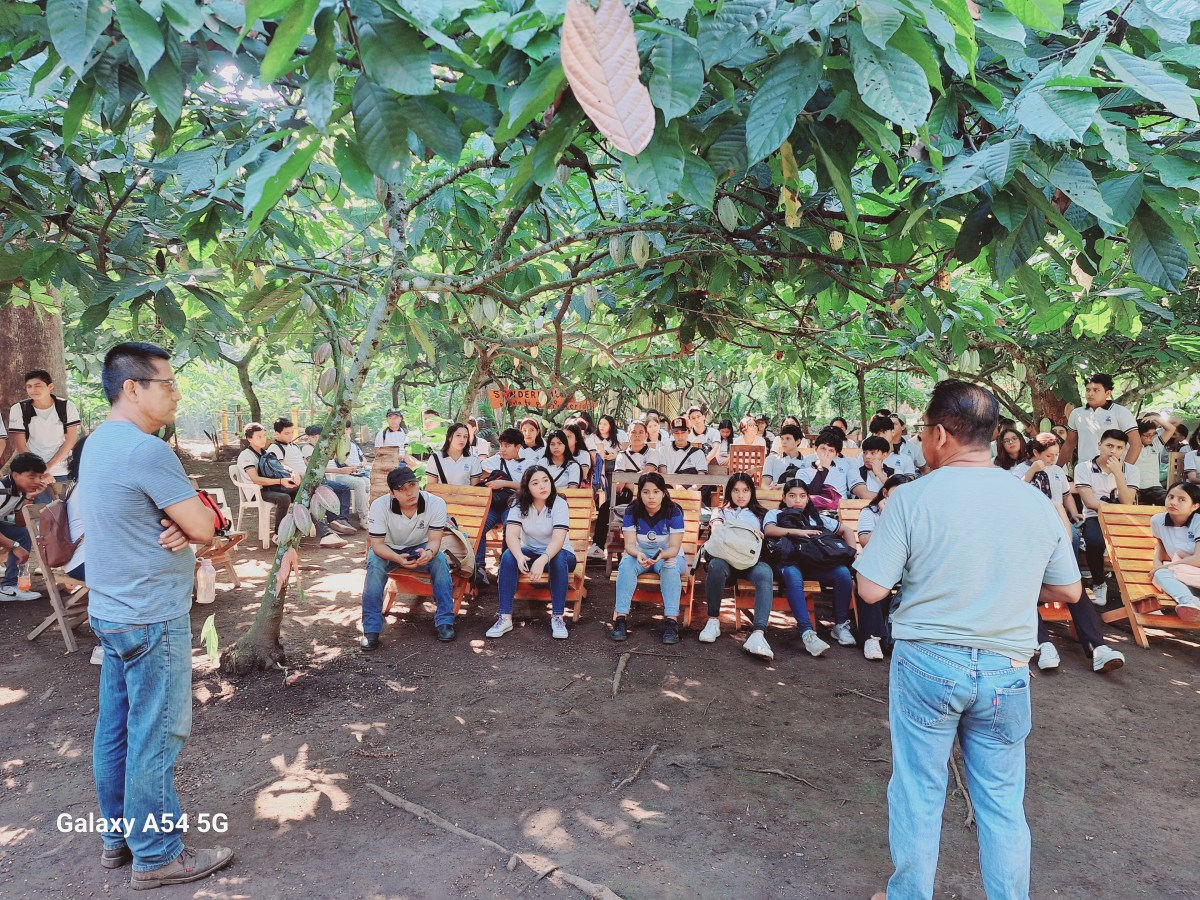
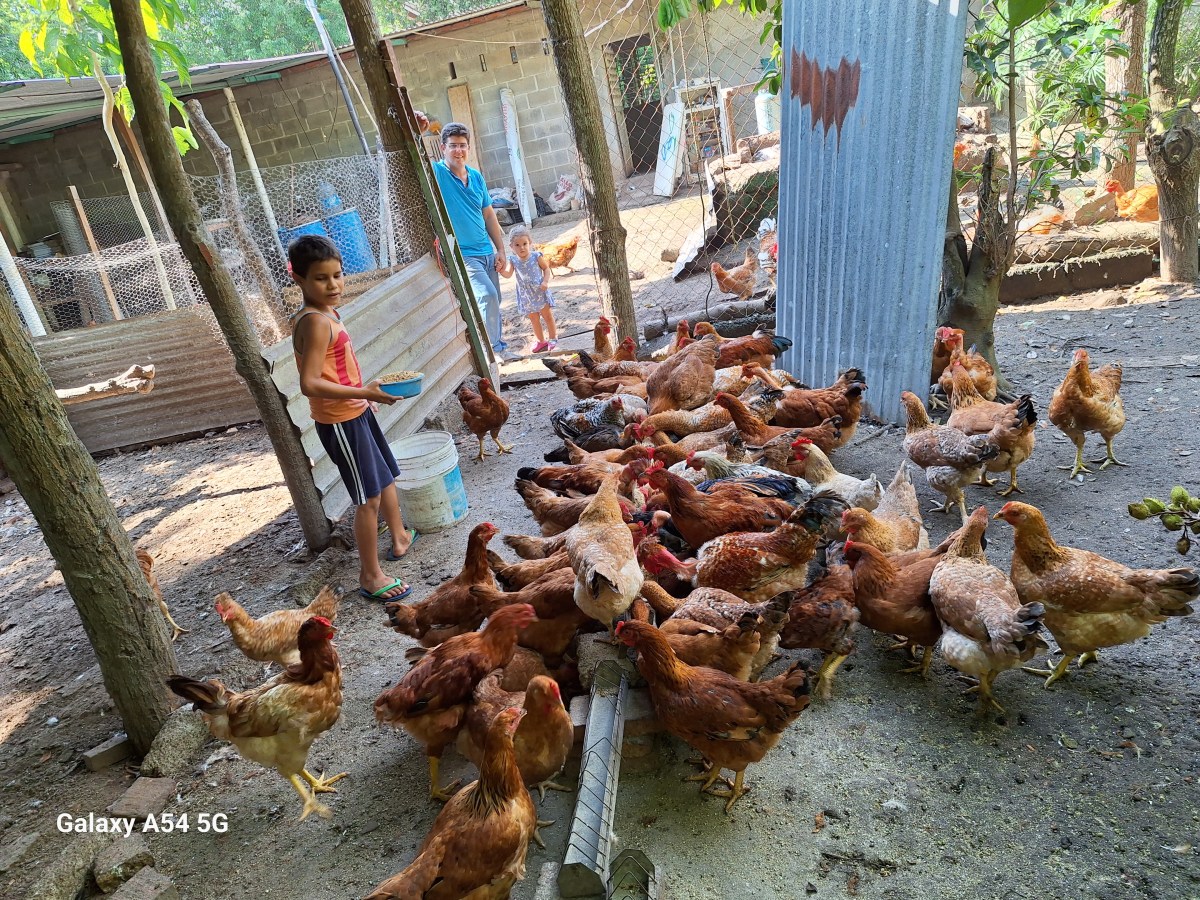
Because chickens cannot lay eggs during the last phases of their lives, we need to replace them every few months to maintain a steady supply of eggs for the farm and the shelter. The sale of old chickens and eggs now finances approximately 100 new chickens every two months, making the egg component of this project sustainable. Your support helps upkeep and improve the farm’s and chicken coop’s infrastructure. Our next goal is to replace the manual water feeders with an automated water system in the chicken coop to save on labor costs.
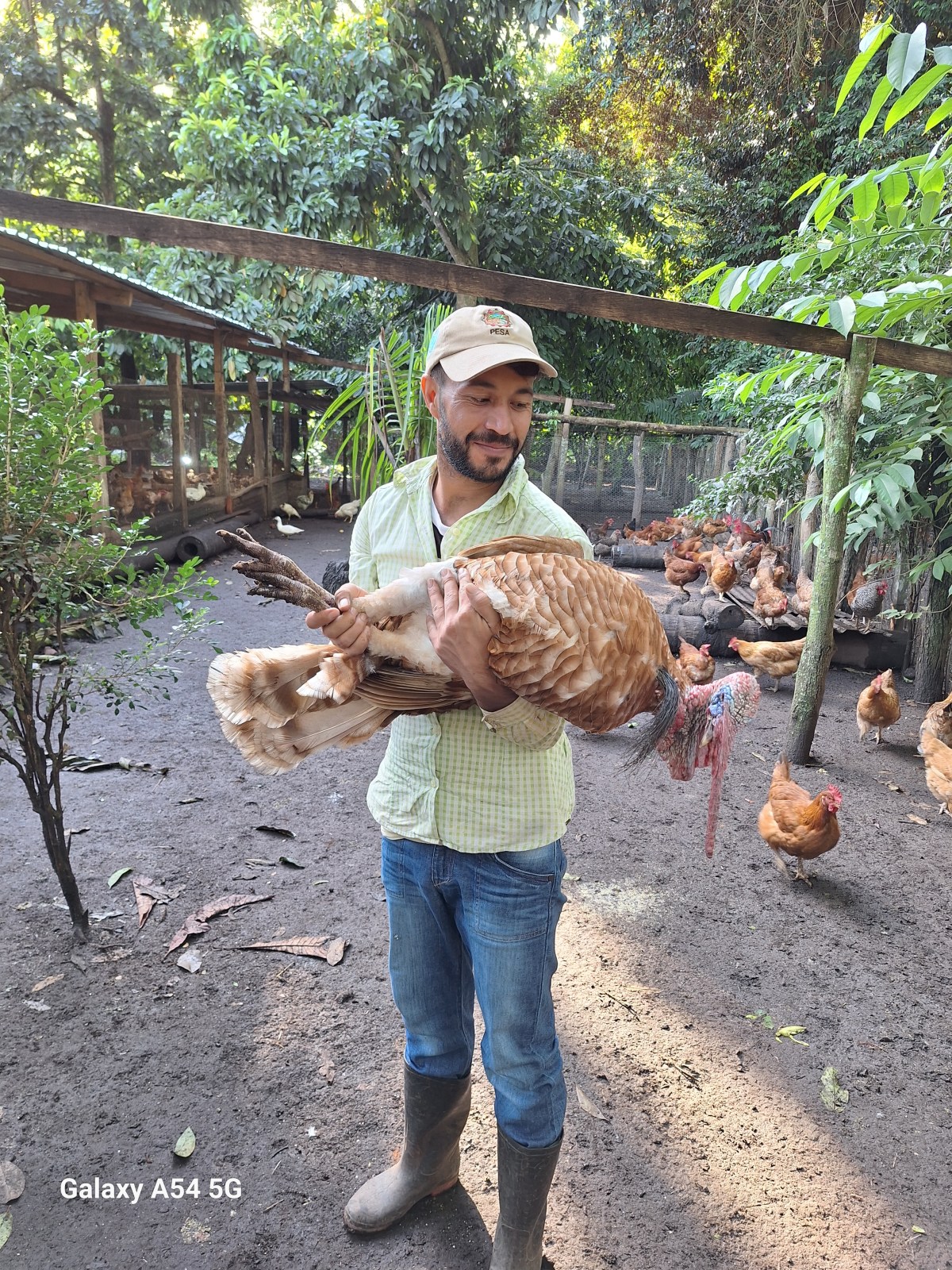
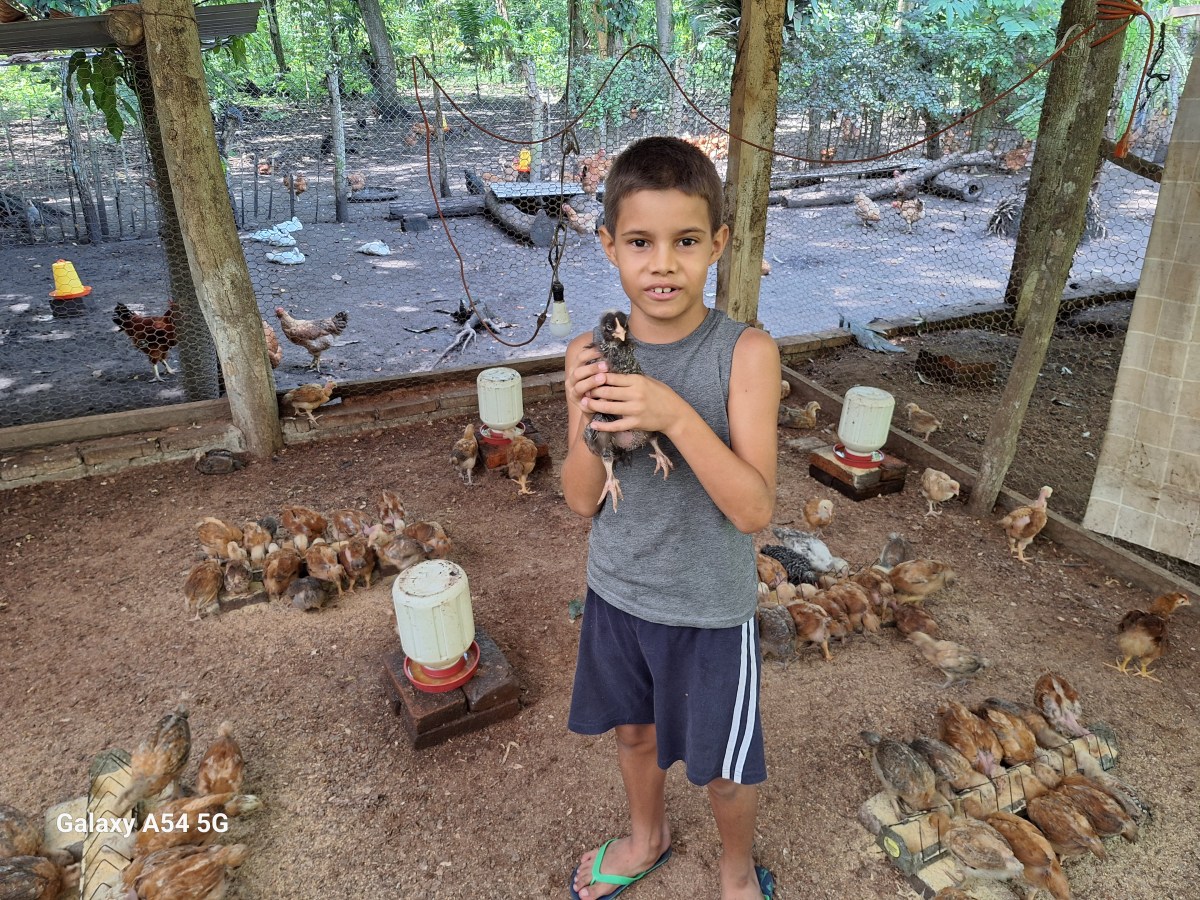
You’ve seen how local people and schools tour the farm, meet the migrants working on it, and soften their attitudes towards displaced people. As locals talk with migrants, they have more empathy because they gain a perspective different from what the media portrays. We have noticed how this empathy manifests itself in egg sales. Over 40% of people who call Tapachula home live in moderate poverty, and over 17% live in extreme poverty. A majority of Tapachulans need to be frugal in order to survive. A dozen of our organic eggs costs 60 pesos compared to 36 pesos for a dozen eggs in a local shop. When we explain that buying our organic eggs helps migrants in the shelter, people are happy to spend more money to buy our eggs.
The farm’s tranquility and the restaurant’s fresh, flavorful food attract people for their first visit, but the beauty of the project keeps them coming back. Many workers from local nongovernmental organizations (NGOs) in Tapachula come to the restaurant, see what your generosity makes possible, and want to participate in it. They can feel what a special project this is. Thank you for putting people first, upholding people’s dignity, and creating a place where peace takes root and grows.

